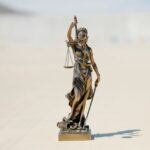
The Commonhold White Paper
May 29, 2025
Marriage at the Expense of a Will: One Binding Agreement in Exchange for Another
June 8, 2025Article by Aaminah Khan
Training an AI chatbot has proven to be extremely difficult through a recent incident with OpenAI and ChatGPT. OpenAI attempted to make ChatGPT more intuitive to generate better responses for users. This was based on the positive feedback users had given to certain responses generated by ChatGPT. Supportive responses were often liked using the ‘thumbs up’ feature, and OpenAI used this data to train ChatGPT to give better responses. This, however, actually caused the responses given by ChatGPT to be overly supportive and insincere. This highlights the rising issues with AI chatbots like ChatGPT with the reliability of their responses, meaning developers must be more cautious and be able to strike a balance between reliable responses being delivered in a supportive manner.
Since then, OpenAI has turned its back on its previous aim to turn the company into a for-profit entity, instead striving to be a public benefit corporation. This has stirred tensions with Elon Musk, who is now taking legal action against the company on the grounds that they are going against their original purpose.
These tensions will likely have wider impacts on the legal industry, especially in the regulatory and governance sectors, where regulators must ensure that companies like OpenAI operate ethically and legally. OpenAI’s shift in its structure may also lead to significant changes in relationships with clients and investors, meaning lawyers will potentially have to advise on corporate governance and restructuring. Furthermore, the action taken by Elon Musk is likely to cause corporate governance restructuring concerns, as smaller technology companies may feel more cautious about changing their own structures in case they suffer the same legal implications. This can, therefore, create a higher demand for lawyers to help advise these companies on such matters to ensure they stay within legal boundaries with less tension.
Sources
https://www.ft.com/content/49ad6c69-9b67-48da-a274-8408dfdaa7cb





